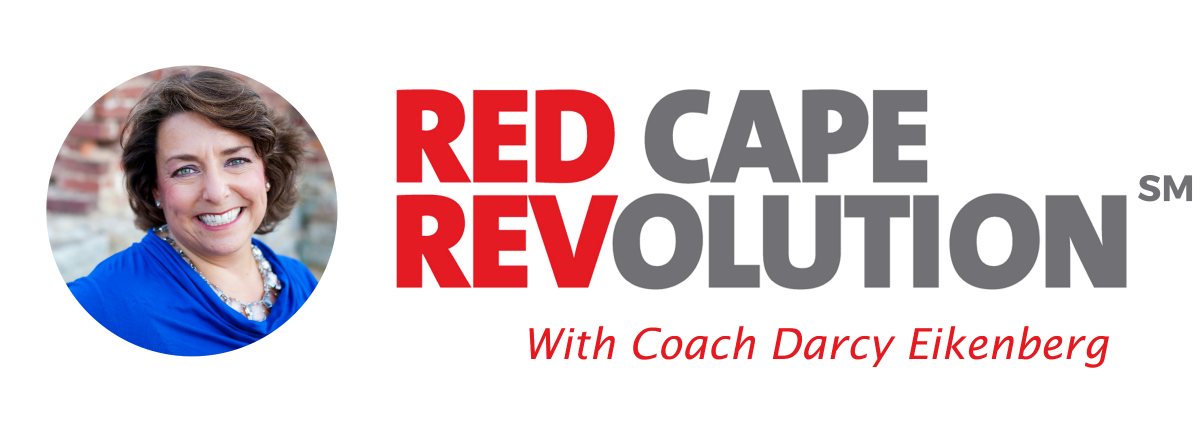At any one time, I typically know someone who’s experiencing a career crisis. Maybe it’s a crisis bubbling under the surface, or maybe it’s one that’s in full eruption mode. But size doesn’t matter here–a crisis is a crisis.
It’s inevitable that if you’re a smart professional working in corporate America today, at some point you’ll experience at least one career crisis.
Maybe it’ll be created by an outside force (a competitor’s innovation smashing your product line; your boss quits, etc.) or it may be of your own initiation (you realize it’s getting harder to get up in the morning, you don’t see any advancement ahead, your spouse is relocated and you have to find work in a new city, etc.).
If you’ve not yet had your own career crisis, that’s great. But don’t get too smug. I can promise you, your time will come. But you can be different from the many others who panic when crisis hits.
You can be prepared.
The Place to Start
There are many ways to be prepared–emotionally, talent-wise, relationship-wise. But the biggest place to start–and the one that scares us most–is being prepared financially. Because it’s scary, let’s talk about it.
For most people, the question of money is inextricably tied to our careers. While some of us are lucky to work for love or passion, let’s face it–we also work to pay the mortgage, fill the gas tank, and keep the fridge stocked.
If you are starting to get whiffs of career change smoke, knowing you’re prepared financially can be the most powerful tool to help you get past career crisis and quickly on your way to clarity, confidence & control.
Being prepared financially may mean knowing you have:
- An emergency stash in the bank to hold you over for a year or more.
- A side business you could quickly expand
- Access to another source of income (spouse’s salary, investments, little Arnold’s paper route, etc.)
- A willingness to take more control over your spending.
The last one is how my former client, D, prepared (I’ll withhold her name for her family’s privacy). D was incredibly unhappy and overstressed in her job, but felt pressure to stay put because of the good living she and her family of 5 enjoyed.
One night, she came home after a hard day and had a breakdown. As she told me later:
“I know now I was exhausted from lying to myself that my career would be fine if I’d just try harder–but I couldn’t see how I could work any harder. So I cried. Really, that night, I cried so hard that the kids did the dishes without being asked!”
When the tears were dried, she sat down and had an honest conversation with her husband, talking about what staying in her high-paid post was costing her and their family.
When they put a value on her health, energy, and time, they realized they could live on less.
It was time to eliminate some expenses they currently thought of as “must-have” to give her the freedom to quickly step into a lower-paid but lower-stress role open at her organization.
Those must-haves included a gas-chugging SUV vs. a smaller car, extra cable channels, a recurring gym membership that was never used, and weekly Costco runs resulting in uneaten bulk junk food.
Just making these cuts—and realizing she wasn’t letting her family down—made D feel better immediately. She worked for a year in the lower paid/lower stress post and along the way discovered a higher paid role that didn’t require the same time or energy as her earlier job.
Creating financial freedom paid off short-term and long-term.
You Can Get Help
Now, everyone may not have the same kind of options to cut expenses as D and her family did. But if it’s time for you to get some help being prepared financially, you may want to consider working with a fee-based financial planner who can help you take an objective look at what you have and what you need, based on what you want.
Fee-based planners get paid a flat rate for their work and so can stay objective and focused on your goals. That’s different from advisors who get paid on commission based on the investments you make (many brokerage houses and banks work like this–not all, but be smart and ask.)
To find a fee-based advisor near you, start with the National Association of Personal Financial Advisors (NAPFA). (For me, the team at Ritter Daniher Financial Advisors takes good care of my interests and helps me stay prepared, no matter where my superpowers take me.)
There are also tons of other money management experts out there today to learn from. One of my faves is consumer advocate Clark Howard. But find the sources that you trust and most importantly, who you’ll listen to.
No matter what you do, just do something now to be prepared financially before your next career crisis happens. Maybe you’ll never need to fall back on your preparation, but if you do, you’ll sleep better knowing you’ve got this one covered.
YOUR TURN: Have you ever been in career crisis? What had you planned for financially–or wished you had? Tell us on Facebook here.
P.S. Remember, if you’re going through career crisis, I’m here to help, too. I’m not a financial expert, but I do help you figure out how to make good decisions, based on gaining your own clarity, building your confidence, and taking control so you can change their lives at work. May I help you change yours? Find out more about coaching here or email my team directly here to get started.



